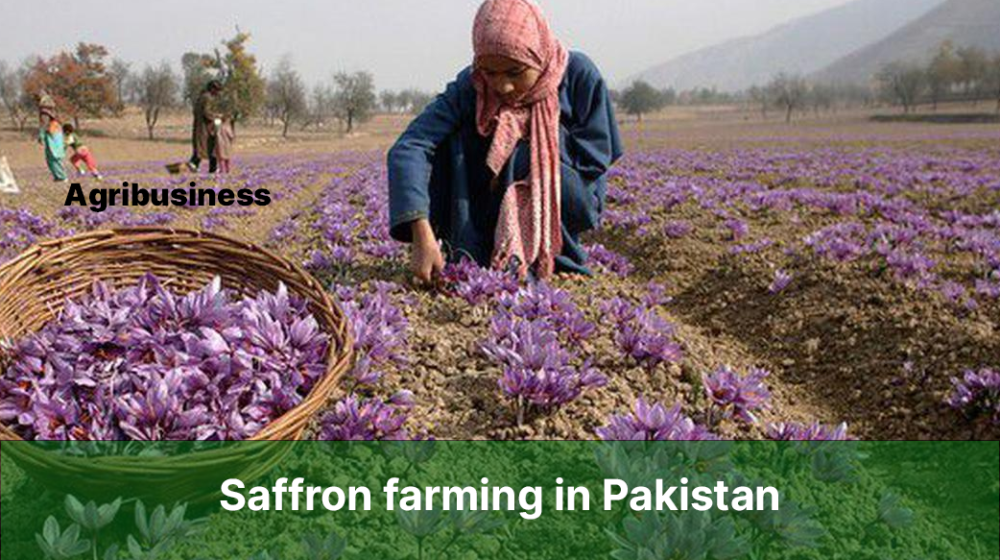Saffron, often referred to as the “red gold,” is a highly prized spice known for its vibrant color, unique flavor, and various health benefits. This article explores saffron farming in Pakistan, including how to obtain saffron seeds, suitable growing conditions, seed prices, yield per acre, sale prices, marketing strategies, and the benefits of saffron cultivation.
Saffron Farming in Pakistan
Saffron farming in Pakistan is gaining popularity due to the suitable climatic conditions and the potential for profitable returns. Saffron cultivation requires patience, careful planning, and proper management to ensure successful production. Farmers typically establish saffron farms by planting corms, which are underground stems used to propagate saffron plants.
Obtaining Saffron Seeds
Saffron seeds, also known as corms, can be obtained from reputable nurseries, agricultural institutes, or experienced saffron farmers. It is crucial to source high-quality corms from reliable sources to ensure healthy plant growth and maximum yield.
Suitable Growing Conditions
Saffron thrives in areas with a Mediterranean climate, characterized by cool winters and hot, dry summers. Regions such as Balochistan and parts of Punjab and Khyber Pakhtunkhwa in Pakistan offer favorable conditions for saffron cultivation. The soil should be well-drained and moderately fertile.
Saffron Seed Price
The price of saffron seeds, or corms, can vary depending on their quality, size, and the supplier. On average, the price of saffron corms in Pakistan ranges from PKR 10 to PKR 20 per piece.
Yield of Saffron from One Acre
The yield of saffron can vary depending on various factors such as cultivation practices, growing conditions, and plant management. On average, one acre of saffron farm can produce around 6 to 8 kilograms of dried saffron threads.
Sale Price of Saffron per kg
The sale price of saffron per kilogram depends on the quality, grade, and market demand. In Pakistan, saffron prices can range from PKR 300,000 to PKR 400,000 per kilogram, or even higher for premium-quality saffron.
Marketing of Saffron in Pakistan
Marketing plays a crucial role in the success of saffron farming. Farmers can promote their saffron products through various channels, including local markets, specialty spice stores, online platforms, and direct sales to restaurants and chefs. Emphasizing the quality, purity, and unique flavor of Pakistani saffron can attract customers and create a niche market.
Benefits of Saffron
Saffron offers numerous benefits beyond its culinary uses. It is known for its antioxidant properties and has been used in traditional medicine for its potential anti-inflammatory, mood-enhancing, and memory-improving effects. Saffron also adds color and aroma to dishes, making it a valuable ingredient in culinary preparations.
Saffron farming presents an opportunity for farmers in Pakistan to diversify their agricultural practices and tap into the lucrative saffron market. With suitable growing conditions, proper management, and effective marketing strategies, saffron cultivation can yield significant returns. Additionally, the numerous health benefits and culinary uses of saffron contribute to its value and demand. By embracing saffron farming, farmers can not only enhance their income but also contribute to the agricultural landscape of Pakistan.
FAQs
FAQ 1: Can saffron be grown in all regions of Pakistan?
Saffron cultivation thrives in regions with a Mediterranean climate. Areas such as Balochistan and parts of Punjab and Khyber Pakhtunkhwa offer suitable conditions for saffron farming in Pakistan.
FAQ 2: How is saffron harvested and processed?
Saffron is harvested by carefully plucking the stigmas from the flowers. These stigmas are then dried and processed to obtain the saffron threads that are used as a spice.
FAQ 3: Are there any specific regulations or certifications for saffron farming in Pakistan?
Currently, there are no specific regulations or certifications for saffron farming in Pakistan. However, it is important to adhere to good agricultural practices and ensure the quality and purity of saffron products.
FAQ 4: How can saffron be used in culinary applications?
Saffron is a versatile spice used in various culinary applications. It adds a distinct flavor, aroma, and vibrant color to dishes such as rice, desserts, tea, and sauces.
FAQ 5: Is saffron farming economically viable in Pakistan?
Yes, saffron farming can be economically viable in Pakistan. With proper cultivation practices, suitable growing conditions, and effective marketing strategies, farmers can achieve profitable returns from saffron cultivation.
